Thoughts on Selected Wendell Berry Quotes
Wendell Berry – Poet, Author, Farmer, Philosopher
Let’s start this conversation off with one of Wendell Berry’s quotes that has had a profound impact on me and what has become Terroir Seeds:
“We are going to have to gather up the fragments of knowledge and responsibilities that have been turned over to governments, corporations, and specialists, and put those fragments back together again in our own minds and in our families and household and neighborhoods.”~ Wendell Berry
I heard or read the old phrase, “If you want to change the world, plant a garden,” when I was much younger. It didn’t make any sense to me at the time, as I strongly disliked being forced to work in our large garden when I had much better things to do with my free time!
I do remember the planting time during spring – readying the rows, digging the small irrigation ditches, making sure that the water would flow all the way to the end of the row. Then the planting of the seeds and transplanting seedlings into their places. We watered our 1/4 acre garden with a gas powered well pump from an old abandoned well that we had cleared up and found water in.
Neither of my parents came from farming or ranching backgrounds. My father wanted to grow our own food because of his concern about the health of grocery store produce in our small town and the proliferation of commercially prepared foods. This was the late 1970s and early 1980s. Most of the knowledge that we used came from our Mother Earth News subscription, along with the advice of a couple of older family friends. Looking back, I see that there was a distinct lack of knowledge and experience even then, but there was a desire to do something different. For all of his faults, my father had it right this time.
Ours was a typical “spring and summer” garden. We planted as soon as we could in the spring and then watered, weeded and waited until the garden came alive and threw way too much produce at us. Then it was cooking, canning and drying seemingly non-stop until the garden sputtered to a stop, usually after the first couple of hard frosts. After that we cleared the dead plants away and waited until the next spring to try again. I remember the dreaded summer break routine of hoeing and weeding after breakfast until it got hot, then again in the late afternoon into early evening. We were gardening in soil that had been fallow for decades, so the seed bank of weeds was tremendous. We didn’t really understand how to manage soil fertility, so we hoed and pulled weeds constantly.
After High School I joined the Navy and left the small town behind just as soon as possible. Six years later – after lots of travel, some growing up and the Gulf War, I left the Navy, the big cities and a failed marriage behind and made the conscious choice to move back to a small town. That was when those words about a garden began to make more sense. I began to realize the world-changing part wasn’t the garden or the food that it grew, not even the world that it was supposed to change. Obviously, one small garden can’t change or feed the world by itself.
I learned the magic of what one small garden can do is share.
It can share its food, the knowledge and experience of how that food was grown, why it tastes as wonderful, rich and delicious as it does and the excitement and contentment that only comes from food you’ve grown. The term “local food” metamorphoses into something entirely different, ceasing to be a carelessly used sound-bite and growing into many delicious food bites that nourish us – body and soul.
That one small garden becomes a few, then several, then many across a town, a city, a county and a nation. That small garden becomes a metaphor, an idea and a movement. That small humble garden becomes a much-needed, deep seated sense of security in a world where very little has the feel of permanence or security today, regardless of social status or financial standing. It gives us grounding and a sense of place, of belonging to and being part of something much bigger, older and better than us.
That small backyard home garden becomes the embodiment of how we as individuals can reclaim our decisions from the proxies of government, corporations and stockholders and make it a personal choice to grow our own food and share it with our family, friends and neighbors, improving everyone’s lives that we share. After all, we are only talking about the third most important ingredient for life, after air and water! Food, as with soil, has been denigrated and degraded into a commodity that is not worth our attention, respect and devotion. We are slowly waking up to this fallacy.
“Odd as I am sure it will appear to some, I can think of no better form of personal involvement in the cure of the environment than that of gardening. A person who is growing a garden, if he is growing it organically, is improving a piece of the world. He is producing something to eat, which makes him somewhat independent of the grocery business, but he is also enlarging, for himself, the meaning of food and the pleasure of eating.”~ Wendell Berry, The Art of the Commonplace: The Agrarian Essays
When we garden, we take an active part in the production of our food and quit passively waiting for it to be grown, processed and delivered to us on our whim. As Joel Salatin said in Folks, This Ain’t Normal, “The average person is still under the aberrant delusion that food should be somebody else’s responsibility until I’m ready to eat it.” Even the smallest container garden starts the reconnection process for that person. They learn and observe what it takes to grow even the smallest amount of food, whether it is a single plant of leaf lettuce or a handful of kitchen herbs. Through success and failure, they begin to realize that food doesn’t just pop into existence at the grocery store regardless of seasonality or weather conditions.
The very act of gardening on any scale forces us to pay attention to the world around us, to observe what is happening and learn more about the interconnected nature of all things. We become aware – perhaps for the very first time- of the enormous complexity of our world, and the realization of the folly of simplistic, reductionist, single solution thinking when applied to complex systems, even such a small one as a garden.
That awakening can be the most beautiful, wondrous experience or one of the most frightful of our lives, depending on how we react and adapt to change. For those who come to see the beauty in growing food, their lives will never be the same. They will acquire a quiet sense of accomplishment, of progress and resiliency that is almost impossible to describe or talk about, but is implicitly understood by another who has made the same journey, whether as a child in a farming or ranching family or one who has made the conscience decision to take the road less traveled.
Our tech driven, always on, instant gratification society is shown to be artificial when we learn that we absolutely cannot plant carrot seeds the day before we want to serve carrot salad to our dinner guests. Everything takes its own time and there are things in life that absolutely cannot be rushed, “right sized”, or optimized to serve our timeline and agenda. As advanced a society as we are today, with as much progress as we’ve made, we are still human beings in a world that is larger than us, that doesn’t march to our drumbeat.
When we begin to garden, we begin to heal our part of the world starting with our own space and lives. As we gain knowledge, experience and success we can start to apply those lessons learned in the garden to other areas of our lives and offer our hard-won experiences to others so that they can hopefully learn from our mistakes. We come to re-connect with the idea that we belong in the world and to the world; we are not separate from and should not be disconnected from it. The idea that human kind shouldn’t be in the wilderness or nature is fully revealed as folly as we learn that not only are we part of the world, we are inseparable from it, no matter how hard some of us try. Rachel Carson said it so well, “Man is a part of nature, and his war against nature is inevitably a war against himself.”
To look at it from a different angle, I leave you with this thought that brings us full circle to the beginning of our conversation:
“Until we understand what the land is, we are at odds with everything we touch. And to come to that understanding it is necessary, even now, to leave the regions of our conquest – the cleared fields, the towns and cities, the highways – and re-enter the woods. For only there can a man encounter the silence and the darkness of his own absence. Only in this silence and darkness can he recover the sense of the world’s longevity, of its ability to thrive without him, of his inferiority to it and his dependence on it. Perhaps then, having heard that silence and seen that darkness, he will grow humble before the place and begin to take it in – to learn from it what it is. As its sounds come into his hearing, and its lights and colors come into his vision, and its odors come into his nostrils, then he may come into its presence as he never has before, and he will arrive in his place and will want to remain. His life will grow out of the ground like the other lives of the place, and take its place among them. He will be with them – neither ignorant of them, nor indifferent to them, nor against them – and so at last he will grow to be native-born. That is, he must reenter the silence and the darkness, and be born again. ~Wendell Berry, The Art of the Commonplace: The Agrarian Essays

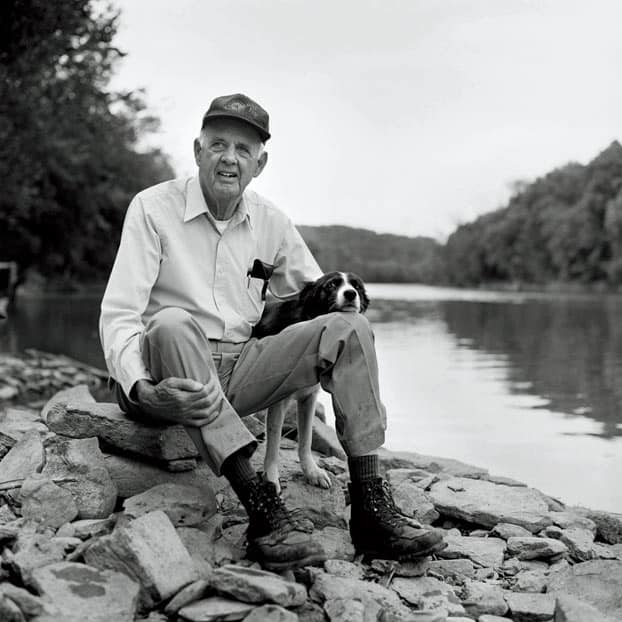
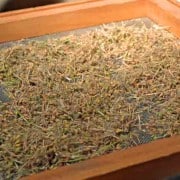
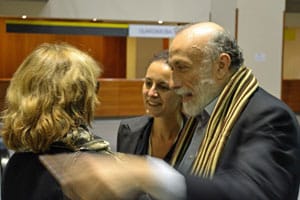

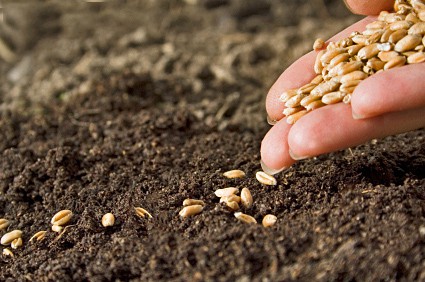
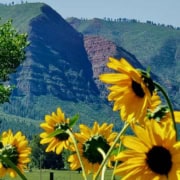
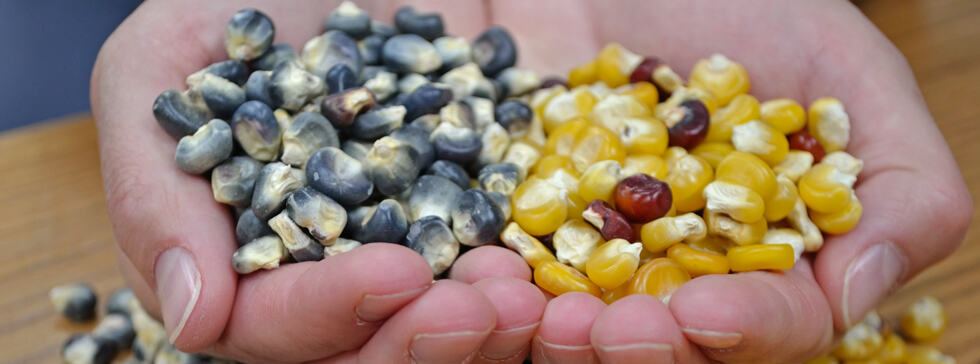
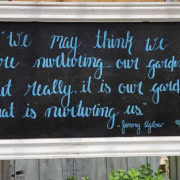

Stephen, Cindy, Allan, Eileen, Ellen and anyone I may have left out. I just wanted you to know that I very much enjoy your most informative and positive newsletter and it is one of the bright points for me while I am in the messy process of a marriage separation. You may never know all those that benefit from your actions. But those little things and smiles or positive words etc. do have a great impact and that impact can be exponential in its influence.
Most sincerely,
Leanna
I really enjoy getting your newsletter, all winter I read all my catalogs and in my minds eye I can see a garden filled to overflow [never happens] unfortunately. I am too old to do much in the way of tilling, so my gardening days are limited to a small 25×25 ft area.but they cannot take away my memories.
Thanks Leo! There is still a lot that can be grown in a 25×25 garden – good to hear you are still at it!
Thanks so much Leanna! You’re wonderful comments have made our day!
I have just discovered your wonderful website . . . what a treasure!. When our boys (now adults with families of their own) were growing up, we had a vegetable garden every year. Even though we struggled with a myriad of vegetable demons that consumed their favorite fare, we managed to have more than enough to share with our family, friends and neighbors. Learning to harvest, can, and freeze, allowed our bounty to last well into winter. Living in South Georgia, we also had access to wild blackberries and plums, so we added berry and plum picking to our late season activities. Taking a leap of faith, the art of making jams and jellies was mastered. So fast forward, our journey moved toward a more urban lifestyle and our vegetable gardening faded into the proverbial sunset as the boys grew up and left home, and our careers filled our lives. Alas, we are now retired, and guess what? We are reinventing our vegetable garden! On a much smaller scale, for sure, but the visions of tomatoes, cucumbers, beans, beets, lettuce and radishes dancing in our heads are none the less enticing. So we have come full circle, have made a commitment to go organic, and have started our garden with heirloom varieties. Only time will tell, but I am excited to try your “recipes” to help our vegetable plants stay healthy and keep those pesky vegetable demons at bay without using any toxic chemicals. Our endeavor is also a way to introduce our grandchildren to gardening so they can learn how vegetables actually grow, and hopefully carry our legacy to the generations to come. Thank you so much!!!
Thanks so much for your kind words Stephanie! Glad to hear you are continuing your gardening adventures, and thanks for showing your kids what a garden can do.
I love your writing. It is so calming and touches my soul. I wish I had discovered it long-er ago!
Wendell Berry, you wrote that, “Only in this silence and darkness can he recover the sense of the world’s longevity, of its ability to thrive without him,”. With what science and scientists are telling us, regarding climate change, the world’s longevity is seriously threatened. The ‘woods’ need us now, to stand for them and all living creatures. It is so difficult to get our voices out there. Are you optimistic? I spend more time in my garden now, listening, watching, letting IT tell ME what needs attention. I think we all need to be in our gardens, to be still and listening. But we need to ACT soon.
Many thanks Carolyn for your kind words! For many of us, gardening is one of the best acts we can do, for many reasons. It helps to feed us, connect us with our neighbors through the excess veggies, and build a sense of responsibility when we see what we, as one person, really can do.